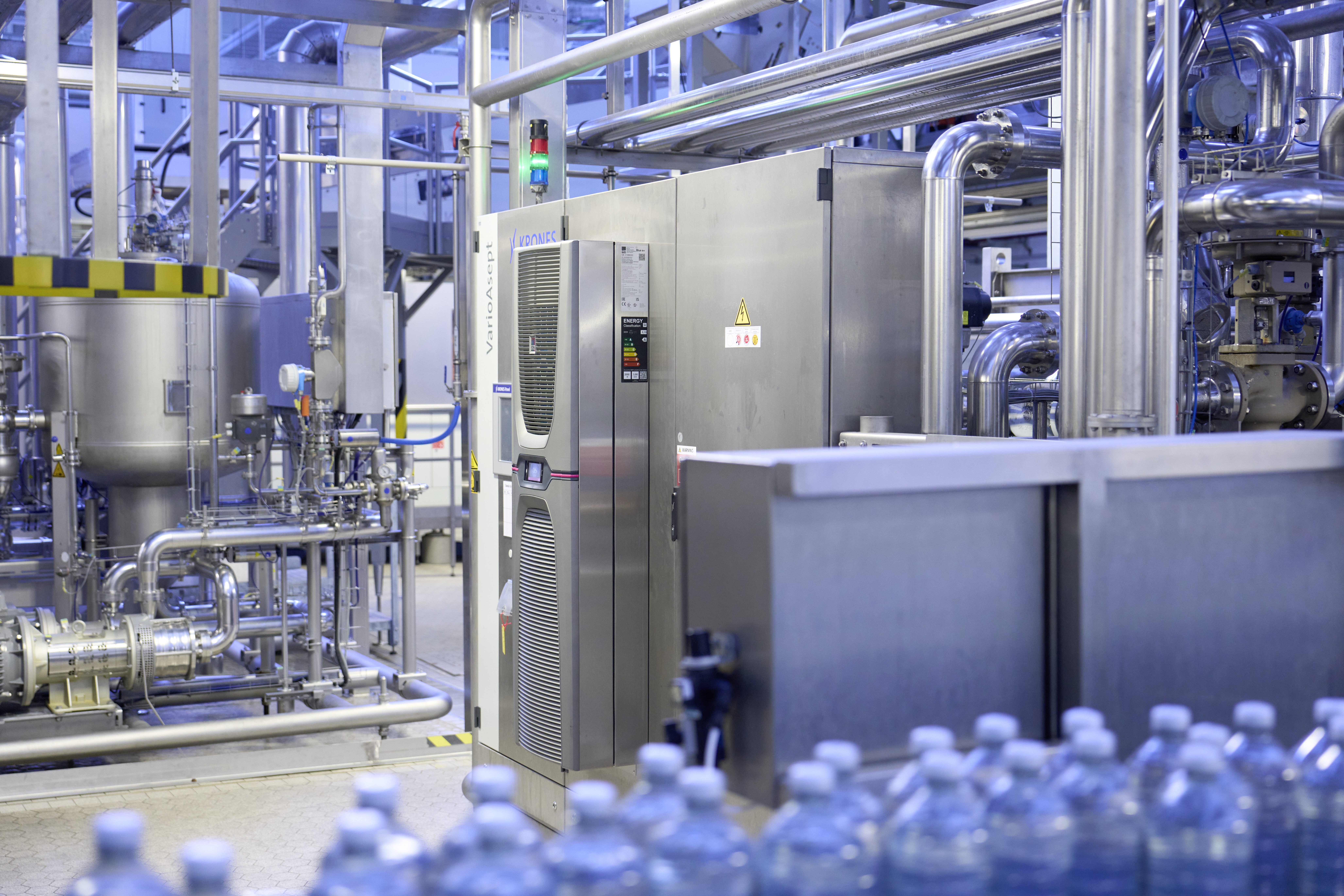By Rittal on Oct 11, 2024 3:17:37 AM
Information from Rittal USA
The importance of energy-efficient enclosure cooling cannot be overstated in today’s manufacturing environment, especially in the context of enhancing sustainability efforts and reducing energy costs. According to a recent report by Deloitte, one of the biggest challenges manufacturers face is leveraging new technologies and processes to improve the efficiency of their production programs.
This challenge is particularly significant for food & beverage manufacturers in Australia due to the high energy demands associated with 24/7 production. As the industry diversifies to include products like meat and dairy alternatives, multiple production lines often operate under one roof, increasing energy consumption.
Industrial enclosure cooling is one of the largest sources of energy use in a food & beverage facility. Below, we outline key considerations for transitioning to energy-efficient cooling to help reduce energy consumption and optimise productivity.
Smarter Climate Control for Flexible Cooling
Flexibility in enclosure climate control is crucial for reducing energy consumption and costs. However, traditional cooling systems that lack Industry 4.0 and IIoT integration can make it difficult to adjust cooling outputs quickly to meet changing demands.
Smart climate control systems help manufacturers build a flexible, strategic cooling infrastructure that delivers precise cooling when and where it’s needed. A digitalised cooling model enables manufacturers to adjust cooling outputs in real-time based on production demands, maximising performance while minimising energy consumption.
Features such as network notifications and app-based climate control also simplify 24/7 operations. If a leak is detected, these systems can be shut down instantly, reducing waste. Rittal’s Blue e+ line of enclosure climate control units, leveraging Industry 4.0 and IIoT technology, creates an efficient connection between cooling systems and plant operators for seamless operation.
Digitalised Cooling for Precise Outputs
Digitalising industrial cooling units with real-time performance data, mobile monitoring, and user-friendly interfaces helps manufacturers deploy more efficient, targeted cooling. A digital design platform allows manufacturers to customise cooling units with precise specifications, improving energy efficiency and adapting to complex or challenging environments.
With Rittal’s RiTherm climate control design software, manufacturers can benefit from new digital capabilities, including:
- Calculations and recommendations for the optimal enclosure climate control systems for any environmental condition.
- Altitude-specific calculations that affect cooling output, ideal for outdoor manufacturing.
- Precise configuration for bayed enclosure suites.
- Recommendations for accessories tailored to your enclosure system.
By digitalising the cooling design process, manufacturers gain increased visibility and transparency, ensuring they select the ideal climate control solution for their food & beverage applications.
Prioritising Streamlined Maintenance
Maximising uptime is essential for Australian food & beverage manufacturers, given the competitive nature of the industry. A major factor in reliable production is ensuring optimal operating conditions for the industrial enclosures that support manufacturing. Reducing maintenance intervals and costs is crucial to achieving greater productivity.
Choosing enclosure cooling units that simplify maintenance helps manufacturers cut energy consumption and waste by reducing the likelihood of unplanned cooling unit downtime. Rittal’s Blue e+ S, featuring heat pipe and inverter technology, provides efficient cooling without a compressor or other regulating elements, significantly reducing the energy required to operate. This simplified design also reduces maintenance time and improves operational reliability.
Despite its streamlined design, the Blue e+ S offers robust cooling capabilities with output categories of 0.3 kW, 0.5 kW, 0.7 kW, and 1 kW, maintaining the cooling flexibility required to keep enclosures at optimal temperatures.
Rittal’s innovative approach to enclosure climate control helps food & beverage manufacturers in Australia deploy precise, targeted cooling solutions that enhance efficiency and productivity. With a wide range of units designed for the unique challenges of food & beverage facilities, partnering with Rittal is the first step toward reducing energy consumption and operational costs.
References
- Deloitte. "2024 Manufacturing Industry Outlook." Accessed October 3, 2024. https://www2.deloitte.com/us/en/insights/industry/manufacturing/manufacturing-industry-outlook.html

